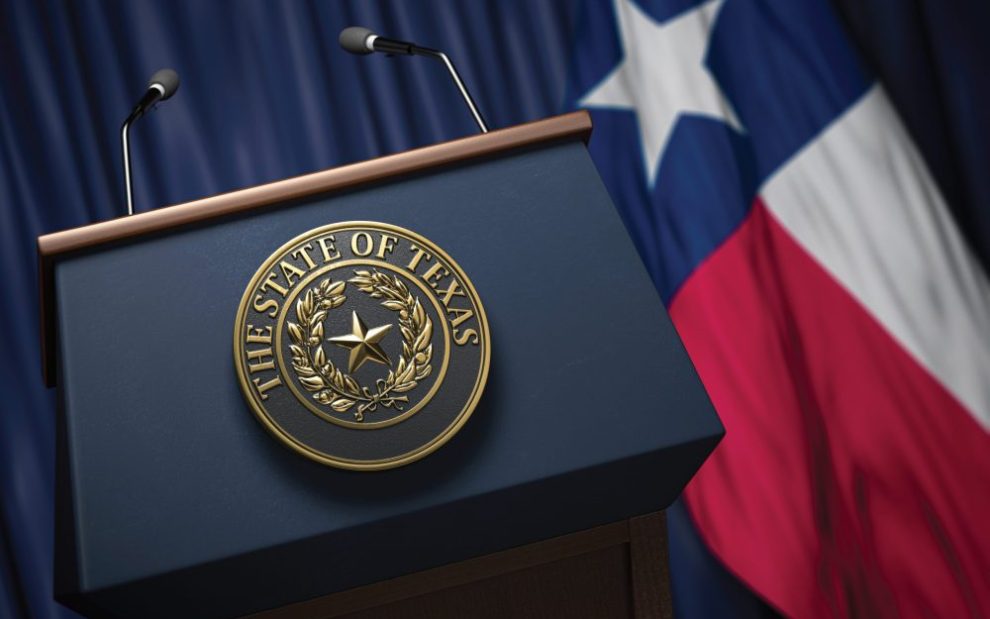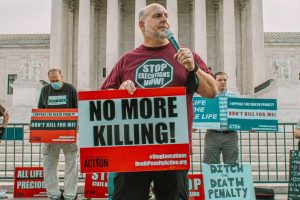As a nation on edge grapples with a gamut of socioeconomic challenges, a powerful political party, desperate to maintain power, seeks a new target. The Catholic Church had played a role in calling out some unruly leaders. Could an attack on the church be a savvy political move?
Are we talking old-school Eastern Europe, Central America in the 1980s, or Danny Ortega’s contemporary Nicaragua? No: This is happening in the United States. The church, of course, has long locked horns with the Democratic party over abortion, funding for Catholic education, and religious liberty issues, but lately it has been members of the Grand Old Party who have found it useful to rile up supporters by going after the church.
In February, Texas Attorney General Ken Paxton began what has been an increasingly aggressive investigation of Catholic migrant assistance programs, suggesting that Catholic Charities offices along the border have engaged in human trafficking. He has particularly focused on Annunciation House in El Paso. Its decades of work with new arrivals have, in the past, garnered accolades; now it’s generating subpoenas.
Catholic Charities offices have denied the allegations, pointing out that their work is conducted in close collaboration with the U.S. Border Patrol. Catholic bishops have stepped up to defend Annunciation House and other Catholic Charities efforts on behalf of migrants as dynamic expressions of Catholic faith that are protected by the U.S. Constitution.
GOP House members planning to investigate federal contracts with Catholic Charities and other groups working to resettle asylum seekers have joined Paxton at the barricades. On an entirely different congressional front, some of the same GOP members have focused on what were previously unremarkable initiatives encouraged by the Catholic Church.
Stockholder activism and socially screened investment funds have long been endorsed as a market-oriented means of prompting better corporate citizenship. Church investors, whether operating as individuals or representatives of religious communities or other church-connected entities, have focused on building portfolios devoid of weapons manufacturers, polluters, or companies with poor labor relations.
Lately, ethically minded portfolio managers have taken to avoiding companies with poor track records related to climate change. That was apparently a bridge too far for these GOP Congress members, who are calling for an investigation of a woke “climate cartel” discriminating against U.S. fossil fuel extractors and burners.
Though the current GOP attacks have been supported by some Catholic conservatives, it’s hard to see much by way of long-term benefit for the party. Times and party affiliation can quickly change. Just ask the Democrats.
The Catholic vote once reliably belonged to the Democratic party; the working-class, immigrant church, and the Democrats seemed neatly aligned on issues such as improving the status of workers and building a social safety net that the grandchildren of these Catholic workers could eventually take for granted. Plenty of them did, especially after they joined the professional class and began moving to the suburbs, where property tax shocks and the Democratic Party’s celebration of abortion rights drove them across the aisle. But now, as their candidate for president finds new nuance in his position on abortion, Republicans in state houses and Congress seem to be seeking ways to blow up their improved relations with the nation’s Catholics.
It’s a truism that the church in the United States is politically homeless. Today’s GOP is making it abundantly clear to Catholics who thought they had found a refuge in Republicanism that there’s no room in this inn for them.
This article also appears in the October 2024 issue of U.S. Catholic (Vol. 89, No. 10, page 42). Click here to subscribe to the magazine.
Image: iStock/Bet_Noire














Add comment